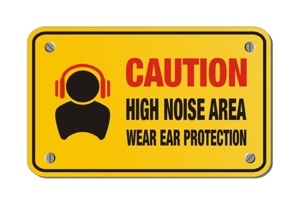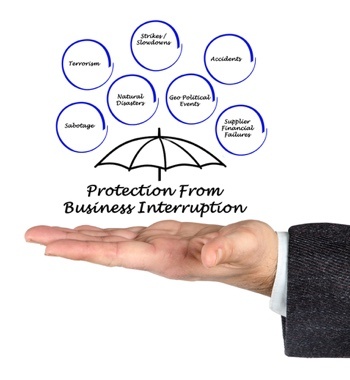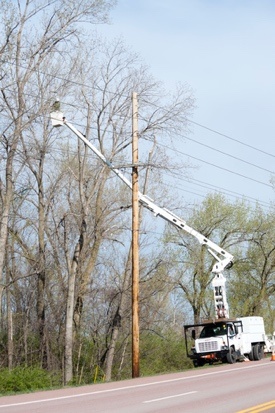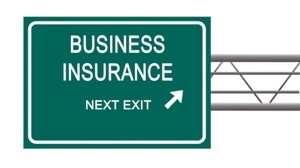 Opioid use and misuse by workers has become a major concern for employers and their workers’ compensation managers.
Opioid use and misuse by workers has become a major concern for employers and their workers’ compensation managers.
An increasing number of injured workers are being prescribed these powerful and addictive drugs to alleviate pain, but frequently the opioid use results in extended disability and additional medical issues for claimants. The overuse of these prescription painkillers is burdening the workers’ compensation system by increasing the cost of each insurance claim.
These startling workers compensation insurance statistics attest to this:
- Average cost of a claim without opioids: $13,000
- Average cost of a claim with a short-acting opioid, such as Percocet: $39,000 (I.e., triple)
- Average cost of a claim with long-acting narcotic, like OxyContin: $117,000 (I.e., 10x)
Adding to the costs, workers’ compensation insurers are now being compelled to pay for prescriptions of buprenorphine and naltrexone, two drugs that are used to wean workers off these addictive opioids.
Opiod Abuse: A Growing Problem
State governments, insurers, and an assortment of workers’ comp stakeholders have been obliged to contend with the issue of opioid usage by injured workers in varying degrees through myriad methods. But pinning down the problem has proved to be as difficult as correcting the problem of opioid abuse itself.
Utilization of statewide databases that track opioid prescriptions, finding and punishing overprescribing doctors, and stricter controls in management provider networks are some of the solutions states have adopted - or are considering - to tackle this complex problem.
And, as opioid abuse continues to grow, it’s gotten the attention of the Centers for Disease Control and Prevention.
“It’s a big problem, and it’s a growing problem,” said Dr. Leonard J. Paulozzi, a medical epidemiologist with CDC’s National Center for Injury Prevention & Control, which has been studying the impact of opioid overdoses, and the problem of overuse. Paulozzi views the drug problem as being potentially more prevalent among the injured worker population.
“There’s an awful lot of back injuries in the workers’ comp population and subsequent surgery related to back problems, and back pain is one of the most common indications now of use of opioids in the United States,” he said. “And it’s being used frequently for back pain and it’s being used long-term for back pain.”
Education and communication are essential
Workers’ compensation managers are fighting a prescription drug epidemic, and the stakes are high. Failure to wage an effective battle can lead to unfortunate consequences:
- Increased costs from protracted disability, medical care, and treatment
- Increased case valuation and settlement costs, which deplete financial reserves
- Increased possibility of deaths and drug overdoses
In order for claims managers to be effective in controlling costs that result in higher workers compensation insurance premiums, they may need to seek outside help. Many are now forming partnerships with various Pharmacy Benefits Management companies that have specific expertise in effecting change. Communication is the first step:
- Educate the injured workers directly about the importance of safe treatment
- Communicate with physicians, explaining all concerns regarding opioid-based prescription drugs
- Post bulletins warning of the dangers of prescription painkillers
Good communication yields encouraging results
Results from companies that have used this system of communication have been encouraging. One pharmaceutical company saw a reduction of almost 11% in opioid usage among their workers’ compensation clients. In addition, the percentage of injured workers using long-term opioids decreased by 2.6% during the same period.
The effort makes financial sense
All studies and efforts to curb opioid usage should have a positive effect on the all-important bottom line, since the medical portion of a workers’ comp claim may be open for several years and could be open for the lifetime of the injured worker. The claims management teams need to be proactive and willing to cooperate and collaborate with the pharmacy industry in educating everyone on this crucial issue.
Contact Us for Help in Getting the Right Workers Comp Insurance
To learn more about workers compensation insurance, and to get the right insurance at very competitive prices, contact us online or call us at (800) 947-1270 or (610) 775-3848.



 Imagine: you’ve just finished one of the most successful sales in your store’s history. As you’re closing and preparing to take your receipts to the bank for deposit, an armed robber confronts you and leaves with all of your cash. All of your hard work and thousands of dollars leave with him.
Imagine: you’ve just finished one of the most successful sales in your store’s history. As you’re closing and preparing to take your receipts to the bank for deposit, an armed robber confronts you and leaves with all of your cash. All of your hard work and thousands of dollars leave with him.
 Problems can occur when workers covered by Medicare Advantage Plans sustain workers compensation injuries and use the plan to pay for medical care.
Problems can occur when workers covered by Medicare Advantage Plans sustain workers compensation injuries and use the plan to pay for medical care.  We Can Help
We Can Help Return-To-Work programs are instrumental in enticing employees out on a workers’ compensation claim to come back to work. Many employers struggle to manage and fill the void that is left behind when a worker is out; however, a solid Return-To-Work program will encourage employees to return to work quickly (once they are cleared to do so by a medical professional of-course), thereby contributing to lower
Return-To-Work programs are instrumental in enticing employees out on a workers’ compensation claim to come back to work. Many employers struggle to manage and fill the void that is left behind when a worker is out; however, a solid Return-To-Work program will encourage employees to return to work quickly (once they are cleared to do so by a medical professional of-course), thereby contributing to lower 
 We'll Help You Save on Workers Compensation Insurance
We'll Help You Save on Workers Compensation Insurance Hearing loss may be a compensable work injury leading to increased
Hearing loss may be a compensable work injury leading to increased  A recent national survey of small businesses yielded some sobering statistics. It found that 66 percent of these businesses do not have business interruption insurance—even though an estimated 25 percent of them will not be able to reopen following a major loss, such as a fire, a break-in, or a storm.
A recent national survey of small businesses yielded some sobering statistics. It found that 66 percent of these businesses do not have business interruption insurance—even though an estimated 25 percent of them will not be able to reopen following a major loss, such as a fire, a break-in, or a storm. Employees who are injured on the job may be entitled to compensation for medical care and wage replacement through their employer’s
Employees who are injured on the job may be entitled to compensation for medical care and wage replacement through their employer’s The storm was ferocious. Luckily, your buildings were spared damage from the high winds and heavy rains; however, a few miles away the storm brought down power lines that supply your business with electricity. While there is no physical damage to your property, you’re still out of business without power. Does your
The storm was ferocious. Luckily, your buildings were spared damage from the high winds and heavy rains; however, a few miles away the storm brought down power lines that supply your business with electricity. While there is no physical damage to your property, you’re still out of business without power. Does your 
 Commercial auto insurance is designed to protect you, your employees, your vehicle, your equipment, your business (in the event of a lawsuit), and other individuals. It has some of the same coverages as personal insurance, but usually includes higher liability coverage and additional add-ons not offered with personal auto insurance.
Commercial auto insurance is designed to protect you, your employees, your vehicle, your equipment, your business (in the event of a lawsuit), and other individuals. It has some of the same coverages as personal insurance, but usually includes higher liability coverage and additional add-ons not offered with personal auto insurance. If you want to protect your employees, your vehicle, your equipment, your business, and other individuals, give us a call at
If you want to protect your employees, your vehicle, your equipment, your business, and other individuals, give us a call at 





